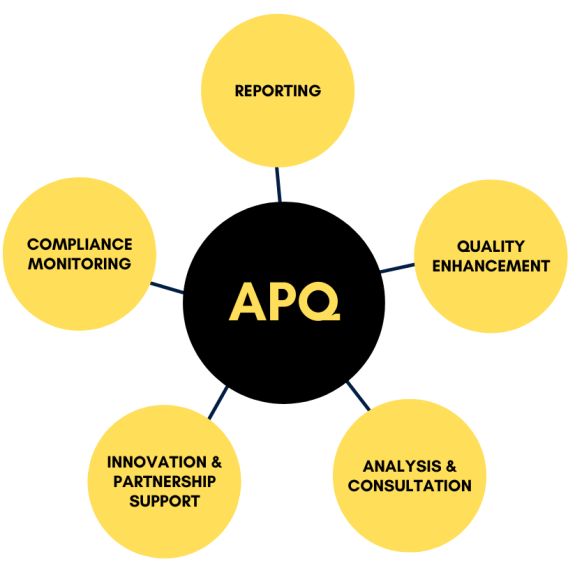Academic Program Quality supports the academic enterprise through leadership and management of several core academic functions. This is accomplished primarily through the integrated work of two collaborative teams:
- Accreditation Monitoring and Reporting coordinates institution-wide activities relating to the university’s institutional accreditation including major milestone reviews, reporting substantive changes to UCF’s current accredited status, institutional profile reporting, and ongoing compliance monitoring. At times this entails facilitating efforts to open or close off-campus instructional locations and coordinating corresponding reporting to the Florida Board of Governors. The team also provides support for programs undertaking programmatic accreditation on behalf of the Office of the Provost and Executive Vice President for Academic Affairs.
- Academic Quality Assurance facilitates cyclical academic program reviews for all UCF degree programs, manages faculty teaching qualifications certification, and serves as degree data custodian for all faculty members and postdoctoral scholars. The team also supports various academic reporting activities to the Florida Board of Governors and efforts to assure institutional alignment across academic functions.
Additionally, APQ partners with the Division of Digital Learning in leading interstate education compliance (state authorization) and provides support for academic partnerships and innovations as well as other special initiatives. The unit also assists with oversight of academic interests within the university’s data governance program.
Collectively our work brings value to UCF in several ways:
